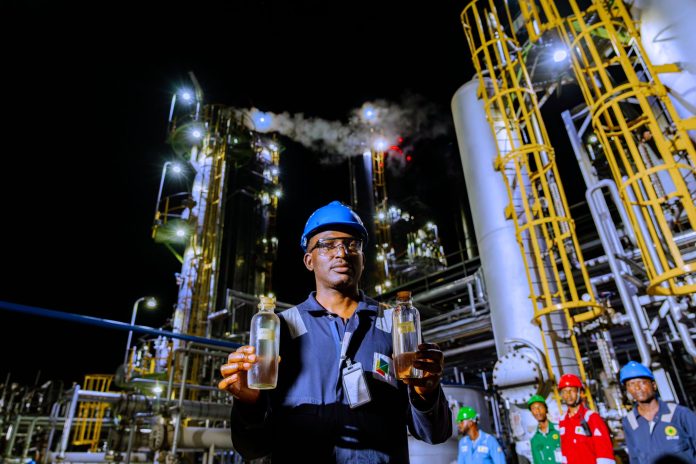In a significant development for Nigeria’s energy sector, the Nigeria National Petroleum Company Limited (NNPCL) announced the successful revitalization of the Port Harcourt refinery, with petroleum product loading officially commencing on November 26. This marks a pivotal milestone in the country’s ongoing efforts to achieve energy security and self-sufficiency.
President Bola Tinubu, in a statement issued by his Special Adviser on Information & Strategy, Bayo Onanuga, praised the achievement and acknowledged the groundwork laid by former President Muhammadu Buhari, whose administration initiated the comprehensive rehabilitation of the nation’s refineries. Tinubu also extended gratitude to the African Export-Import Bank for financing the project, demonstrating confidence in Nigeria’s industrial recovery efforts.
The commendation extended to NNPCL’s Group Chief Executive Officer, Mele Kyari, whose leadership was deemed essential in overcoming the challenges that had stalled refinery operations for years. With this achievement, Tinubu urged NNPCL to accelerate the planned reactivation of other refineries, including the second Port Harcourt facility and those in Warri and Kaduna, to further bolster the nation’s refining capacity.
However, this success story is not without its complexities. While the presidency highlights the values of patience, integrity, and accountability in the nation’s infrastructure rebuilding process, questions linger about how Nigeria will sustain these efforts amid broader economic challenges. Observers are also calling for increased transparency and citizen engagement to ensure the benefits of refinery rehabilitation are widely felt.
As Tinubu aligns the refinery’s revival with his Renewed Hope Agenda for economic prosperity, energy analysts emphasize the need for complementary policies to strengthen energy security and boost exports. They argue that these efforts, if managed effectively, could position Nigeria as a significant player in the global energy market.
The revitalization of the Port Harcourt refinery represents more than just an operational victory; it is a critical test of Nigeria’s ability to transform its vast resources into tangible benefits for its citizens. As the NNPCL pushes forward, stakeholders await concrete outcomes that reflect the long-promised dividends of energy reforms.



